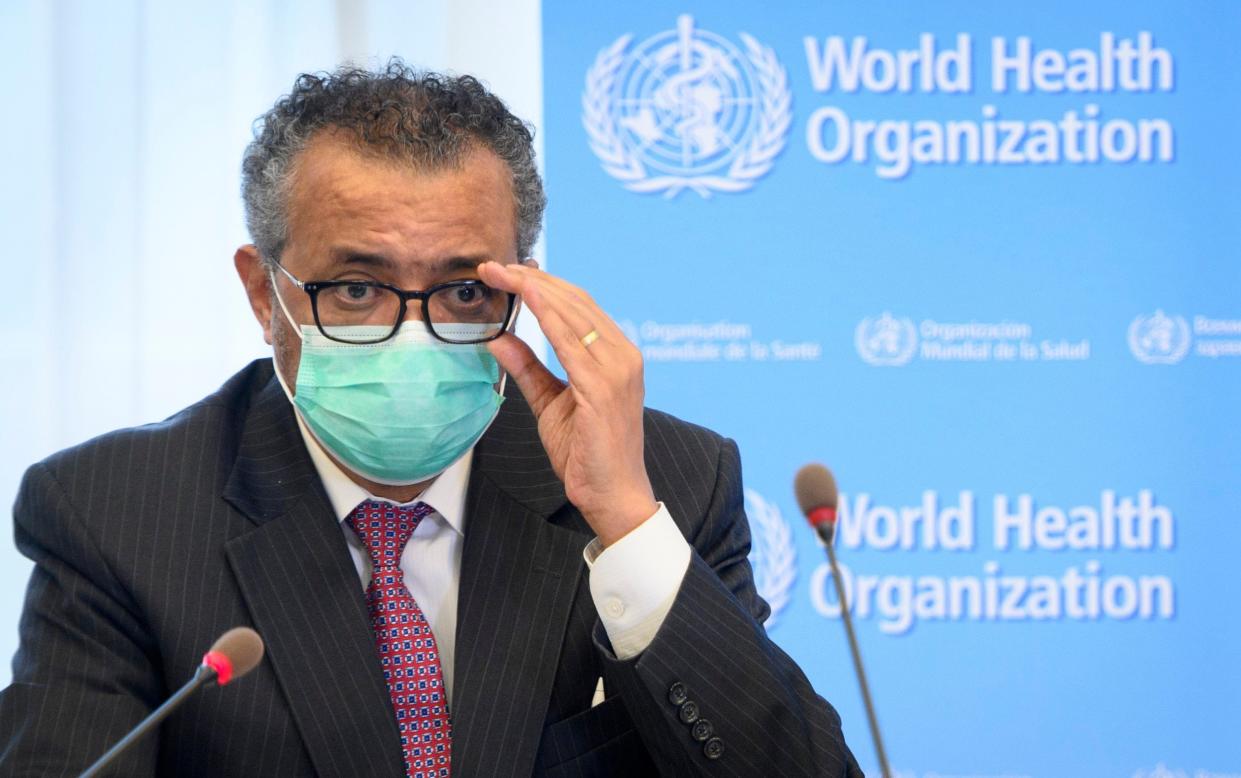Covid lab leak theories must be investigated, says WHO chief

All theories must be investigated in the hunt for the origins of Covid, the head of the World Health Organisation (WHO) has said in the first indication that engineered virus and lab leak theories will be officially scrutinised.
In a joint editorial in the journal Science, Dr Tedros Adhanom Ghebreyesus, the WHO director general, and two colleagues wrote that "lab hypotheses must be carefully examined" with a focus on institutions in Wuhan.
They added: "A lab accident cannot be ruled out until there is sufficient evidence to do so and those results are openly shared." Unlike previous interventions by the WHO, they do not say that an animal spillover is the most likely scenario.
It comes as the WHO announced a new Scientific Advisory Group on the Origins of Novel Pathogens (Sago), which will examine the emergence of Covid in greater detail.
On Wednesday, 26 scientists were nominated to join Sago. They included Dr Yungui Yang, the deputy director of the Beijing Institute of Genomics at the Chinese Academy of Sciences, Dr John Watson, England's former deputy chief medical officer, and Dr Stuart Blacksell, a professor of tropical microbiology and biosecurity expert at the University of Oxford.
There will be a two-week consultation period in which WHO members may challenge individual appointments.
While the team will continue to investigate the potential for an animal spillover through wildlife sold in markets around Wuhan and other natural scenarios, it will also look into the possibility of a lab accident.
Earlier this year, an investigation by the WHO concluded that the Covid pandemic was likely to have had a natural origin, probably jumping from animals to humans.
But the inquiry was criticised after it emerged that Chinese scientists had declined to discuss the lab leak scenario unless the final report dismissed any need for further investigation.
Since the outbreak, China has also refused to grant access to lab records which would show whether natural or engineered viruses were being held at Wuhan. It has also failed to allow access to blood samples of the earliest Covid infections.
It has since come to light that Wuhan scientists were collaborating with US teams on research to make coronaviruses more infectious to humans.
The editorial said it was "clear" that politics had hampered efforts by scientists to get to the bottom of what had caused the global outbreak.
The previous WHO investigation team included Peter Dazsak, a British zoologist who worked closely with Wuhan and US researchers on tracking down deadly viruses and engineering them to be more infectious. He has been left out of the list of nominees for the new team.
Writing in Science, Dr Tedros and colleagues said it was crucial to learn the true origins of Covid to avoid another deadly "Disease X". The editorial said: "Laboratory hypotheses must be examined carefully, with a focus on labs in the location where the first reports of human infections emerged in Wuhan.
"All hypotheses must continue to be examined and, as WHO has said from the outset, a fully open and transparent scientific process is essential."
The editorial authors, who also include Maria Van Kerkhove, the WHO Covid technical lead, and Michael Ryan, the executive director of the WHO health emergencies programme, called for lab protocols around the world to be monitored and strengthened.
"Detailed investigations of the earliest known and suspected cases in China prior to December 2019 are still urgently needed, including analyses of stored blood samples from 2019 in Wuhan and surrounding areas and retrospective searches of hospital and mortality data for earlier cases," they said.
"Globally, at least 4.8 million people have died from Covid-19. They and their families are owed answers as to where and how the virus originated. It's in everyone's interest to better prepare for the next Disease X."
On Wednesday, China said it would analyse up to 200,000 samples held in blood banks for traces of Covid, a long-standing demand of the WHO and the international community.


